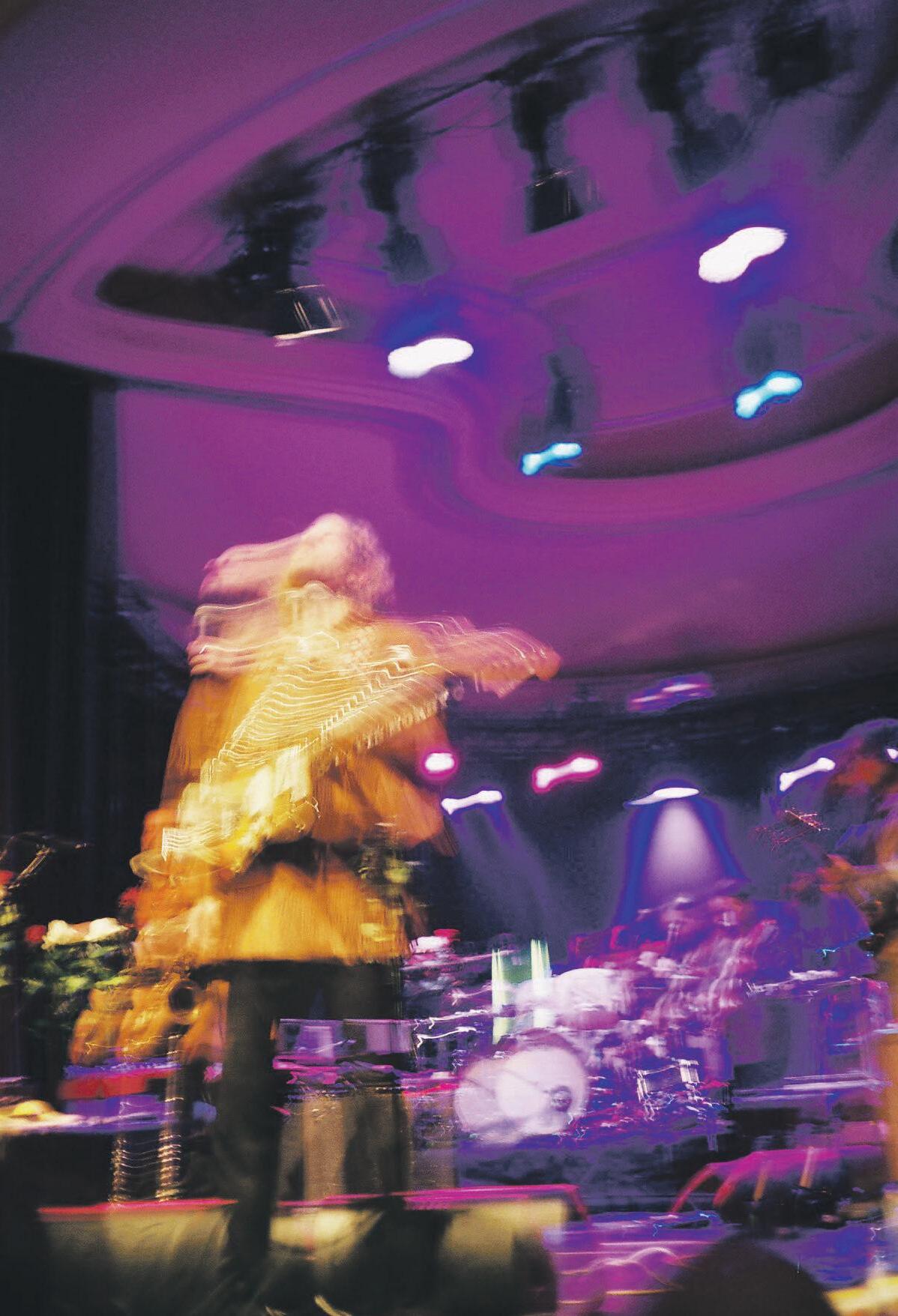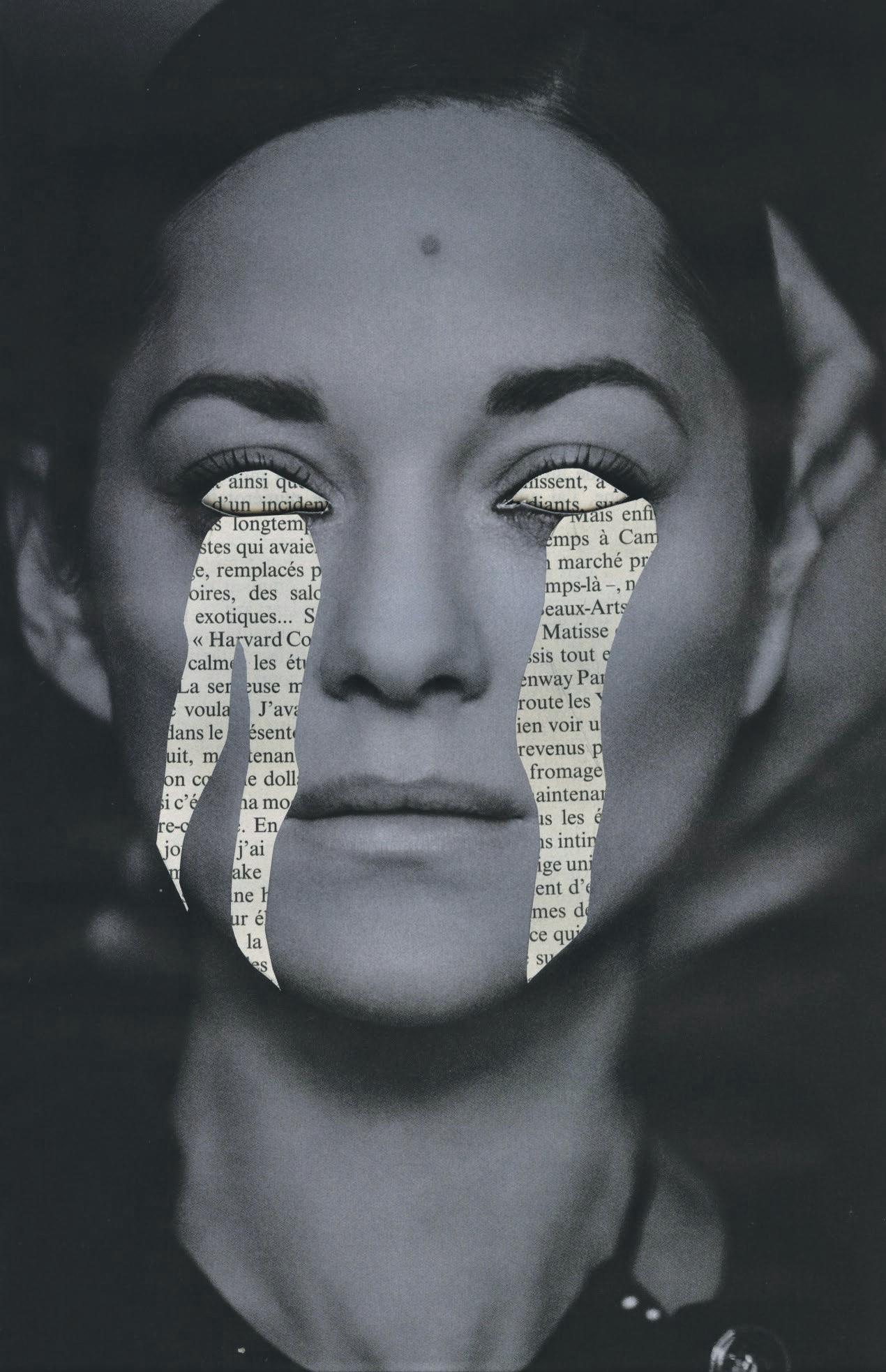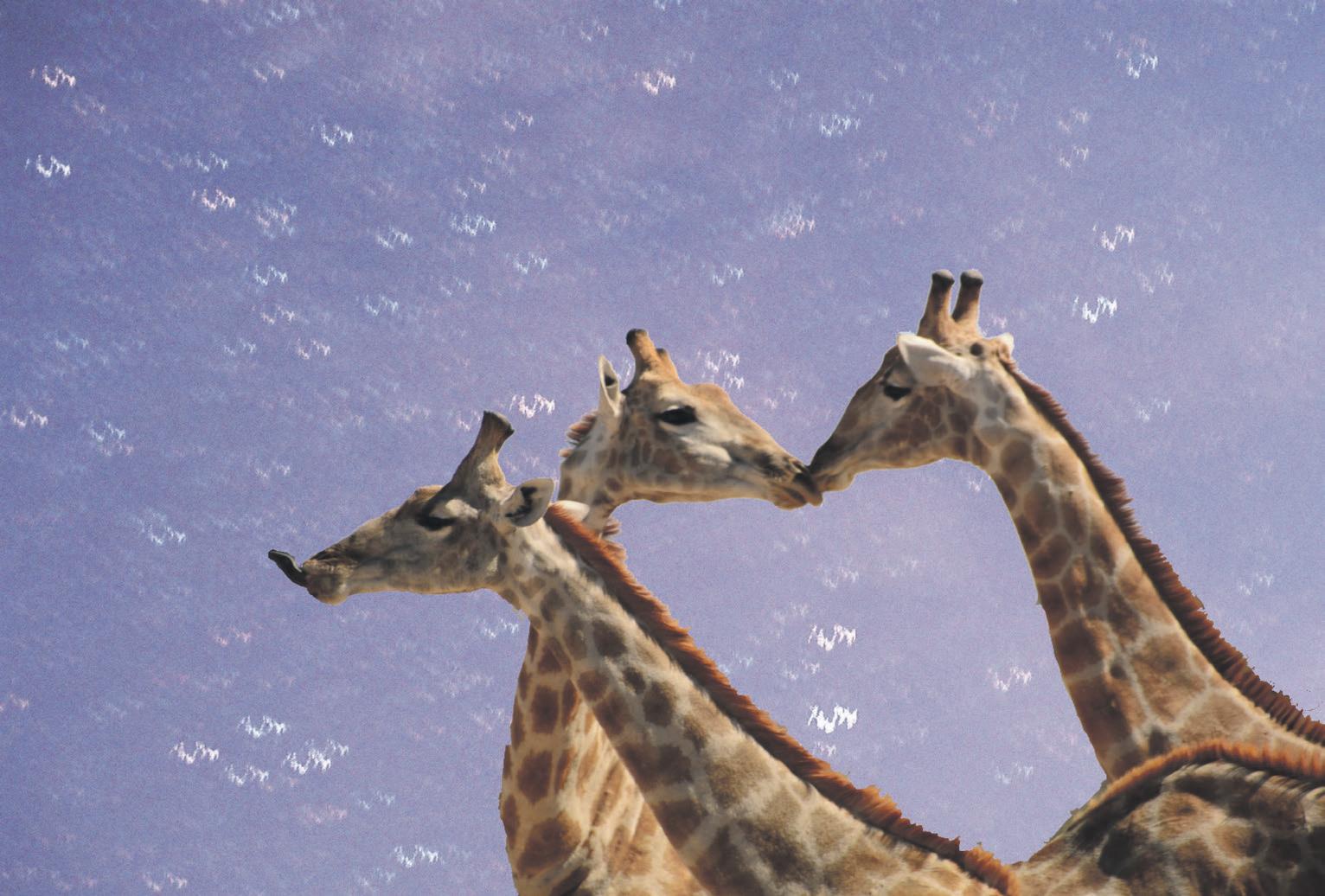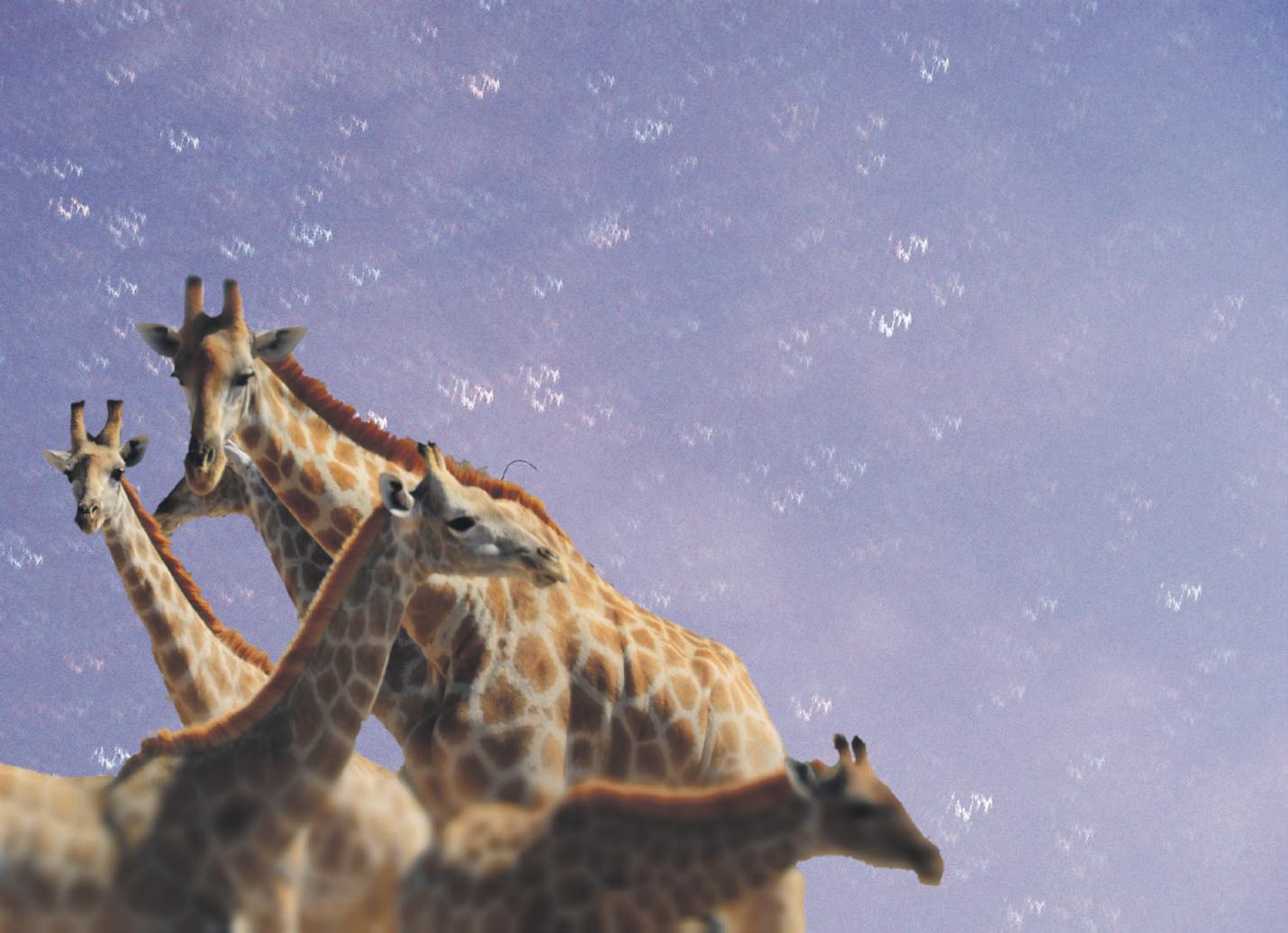
13 minute read
Happiness – from the perspective of an exchange student
from Scoperang 2023
By Sannya Li
Before I came to UCU for exchange, I’d already caught a glimpse of what my friends’ exchange experiences were like on social media. What I saw on their Instagram stories formed an expectation of what my exchange in Utrecht would and should be like. Something prevalent in my friends’ exchange journey was that they got to travel around Europe every weekend. They skipped classes without any consequences. And being graded on a pass/fail basis means that going on exchange is synonymous with living in a utopia where one gets to escape from all kinds of academic stress.
Advertisement
Having spent my first two years of university on Zoom, I didn’t get to experience college life. Back in my home university, there are five elements of college life that students are expected to have experienced before they graduate. These are studying, dating, living in residential halls, joining student committees, and getting a part-time job. If you fail to complete any of these five tasks, the consensus is that you did not live your college life to the fullest. You did not really make the most out of the 4 years as an undergraduate student.
This is terrible news for me, because I’m already in my third year and I’ve only achieved the first and the fifth task. I always joke around telling my friends that I’m totally okay with being that student who prefers to chill in her room studying, reading, and writing. I love these activities, but deep down I know that FOMO hits me every now and then. I get jealous of seeing people being happier than I am. I wanted to try new things and make friends, but I told myself: you’re not a freshman anymore, forget about it. You’re a boring person. You can’t even sustain a conversation.
So, when I saw how carefree my friends were when they went on exchange, I thought to myself: going on exchange is exactly the missing piece that I’ve been looking for. Without the pressure of having to get an A, my perpetual dissatisfaction with my college life would come to an end. I would be happier. I would be able to gain back a college life outside of academics. And with this in mind, I looked forward to inventing a new self – the Sannya who would fit into the mould of what people back home thought a university student should be.
I felt pretty upbeat and excited about my life at UCU as things began to settle down. But when my friends back home started asking me if I’d been travelling around Europe with the new friends I’d made, whether I’d tried weed yet, or whether I’d gone to a bar or not, things took a bad turn. My answer to their questions was a solid “no”. I’ve done none of these things.
At that moment, I felt like a failure. I thought I was really living my life here, but the “no” weighed heavy on my shoulders. No one told me that there existed a checklist that I, as an exchange student in the Netherlands, was supposed to tick off before going home. I was worried that people would think that I’m still the same old boring person. If I’ve done none of the things that people have expected me to do, does that mean I’ve just wasted another opportunity?
This anxiety pressured me to justify my decision of not completing the “must-do’s in the Netherlands from a foreigner’s perspective”. But the only answer I could come up with was “I just don’t want to!”. And that was strange because I’ve never felt so strongly about what I don’t want. I’ve always convinced myself that what I want is what the majority wants. This make-belief worked for quite a while, but not during my time here.
I thought the key to happiness was to squeeze myself into the cookie cutter so that I’d come out as the perfect biscuit, shaped like everyone else. To me, answering “no” to my friends meant that I’d lost the key to happiness. I felt like there was something wrong with me for not wanting to try the things that are stereotypically Dutch, or stereotypically marked as what an exchange student would do.
But something even more peculiar was that doing unordinary things actually made me happier and more comfortable with myself, and this was something I have never experienced. I don’t want to travel around Europe during the weekends because there are so many museums in the Netherlands that I want to visit. The number and variety of museums back home is very limited so when I saw one dedicated to witchcraft (Museum de Heksenwaag) in Utrecht, I knew spending my weekends exploring museums would make me happy.
Attending Zoom university back home meant that I didn’t get the chance to meet new people, and I knew that making connections and having meaningful conversations with others was what I wanted from my exchange. Being brought up in an environment where drinking was not a predominant part of life, I knew that coffee chats instead of a night at the bar would excite me and recharge my social battery.
It was doing these things repeatedly that made me realise happiness isn’t as out of my grasp as I expected it to be. I just had to accept that happiness is an open-ended question whose answer changes depending on where I’m at. I cannot look for a happy life while also forcing myself to do things that I know will not make me happy. I had to accept that my equation to happiness simply isn’t the sum of the five must-do’s for university students. This equation might have worked for a majority of people, but I had to accept that I’m just not one of them. And having to figure out what makes me genuinely happy is such a bizarre thing because, all along, I thought there were default answers to happiness. It was as if a rulebook to happiness existed and that if I just followed it, happiness would fall into my pockets.
I’m now two months into the exchange, and I’m proud to say that I’m getting more into the swing of things. It is strange that I feel comfortable with having an experience that is different from my friends. I can say “no” without feeling the need to prove to others that I’m still living my exchange life, even if I did none of the so-called “must-do’s”. And something even more peculiar is that I actually managed to figure out how I want my exchange experience to go without referring to any of the five elements that people back home are so obsessed with.
It’s been quite a while since I’ve experienced happiness this way. I know I’m happy when I feel excited about my next museum visit. I know I’m happy when I feel energised after a coffee date with my classmate. I know I’m happy when I look forward to a walk in the Amelisweerd forest after class. I know I’m happy when grocery shopping, meal planning and doing laundry become a satisfying part of life. Happiness comes to me naturally when I stop thinking about it. It becomes less elusive when I give myself the freedom and permission to do whatever feels best to me. This is not to say that I no longer experience FOMO when I’m not doing the things that other exchange students are doing. But achieving happiness no longer feels like a daunting task. Happiness blooms when I’m least expecting it. It’s bizarre, it’s odd. But I guess one must experience the peculiarity of happiness, before reflecting upon how happiness can become more tangible.
By Mila Frattini

I fear the freedom of my own Roots. The itch to rip them outBeckonslike tipping over a ledge: head over heels.
* * *
Remembering can be like Biting one's tender mind.
The Tyrant who reigns from the heartsuffers.
Condemned to be an oxymoron: a casualty of his own Cruelty.
* * *

How can the round Bear the weight of all material things?
If thoughts had Masseswe would surely sink.
By Jasmine Yi Carder
I felt like I had always known her.
The first time we met was at the bus stop, a couple weeks into second grade. Although I only lived a few blocks from school, I was still “too young” to be allowed to walk. The sky was overcast and rain was coming down like the mist sprayed on supermarket vegetables to keep them fresh. I was studying the fir trees lining the opposite side of the street. The trunks were wider than me, and who knows how many times taller. Their scaly bark was quilted in curving patterns that danced through the floating water. But it was their needles I loved. Thin, shiny, sharp, identical to sewing needles in every way but one: they were a deep velvety green. I spent several minutes mindlessly staring into them before eventually losing my focus. I looked away in search of the bus but instead, I saw her. It startled me. I hadn’t noticed her approach. She didn’t seem to notice me either. She was focused on her legs as they dangled a couple inches from the ground. I looked away but couldn’t help myself from taking several glances back.
She must have felt my gaze because she looked up from her shoes and gave me a small, tentative smile. I smiled too. She didn’t say anything. I kept watching her from the corner of my eye as we waited. Does she live around here? I thought. No, I haven't seen her before. Where did she come from?
My thoughts were interrupted by her outstretched hand: “Wanna be friends?” Her frankness startled me. I looked at her carefully. She had little braids in her dark hair and an eerily calm, yet warm, face.
“Um.. yeah.”
So we became friends.
I soon learned a lot about her. She had a big, yet reserved, personality. We would be sitting in class together, and no one would see anything special about her. The most people could say about her at first glance, was that she looked a little shy. But that wasn’t it. I knew she wasn’t shy. She was just saving up her words. Her face could be perfectly still, then a switch would flip, and she got going.
“Why are you reading that? This book is sooo unrealistic. The fifth is much better.”

I frowned, “Why?” Even a seven-year-old knows on some level that there is nothing particularly realistic about any of the Rainbow Magic fairy books.
“Well, you see, in this book the friends get abducted by elves, and Ruby does this thing where she tries to save everyone, but she really should have waited for them to send her their signal. And Indigo wasn’t in this one very much, even though she’s the smart one. And Amber, don’t even get me started on Amber. Who would lose their wand in a bush?....” Overtaken by an outburst of passion, she went on and on. Her face lit up, and her eyes sparkled as she looked at me, right at me. I was mesmerized.
When I realized she had finished I fumbled for a response. “Ahh…I don’t know. They tried their best.”
She got this teasing look on her face that said, oh, how lost you are. “Sure, but really, they were so dumb in this one. Don’t you think?”
“Yeah, I guess you're right,” I hadn’t even gotten to the second chapter but something about her made me want to agree. She went off on long tangents like that semi-frequently. About fairies, people at school, the rules of games we had invented together, anything really. She acted as if she knew everything and I believed her. When she came alive with words, it was one of the first times I truly thought of someone as beautiful. Despite this, sometimes, it bothered me. There were lots of things about her like that. They were so bright, and yet a little off. Like when she pushed me out of my comfort zone and then kept pushing and pushing and pushing. Or, when she would randomly decide that I desperately needed her help and launch into a feverish plan to improve whatever I was doing, regardless of how unimportant it might have been. Usually, this stuff wouldn’t get to me, but when it did, she could tell. She wouldn’t try to hurt me, but she didn’t seem to care if she did either. It was like she found my frustration cute. People didn’t notice this about her. Not most kids, not teachers, nor my parents who adored her. It made sense, she had this way of being the sweetest person you’d ever met. It seemed that I was the only one who noticed the flip side. Then, there was this one time, when it was still warm outside, that I went into the yard to ask if she wanted to play. I didn’t know it yet but I would remember that day for a long time. I saw her and this petite girl with darling pigtails crouched in the blooming periwinkle vines that covered the area under the porch. They looked so angelic, so perfect. I couldn’t help but stay for a minute. I didn’t belong in such a lovely scene. Eventually, I approached them and the small girl smiled. My friend didn’t look up, “We’re busy.” I wanted to sit in the periwinkles too. I didn’t know what to say, so I just stood there and looked at them.
“Leave us alone,” she said. Her face was made of stone. Usually, when I sensed she was off, I retreated, but for some reason, I couldn’t pull myself away, “No, let me stay.”
“No.”
“Please?” I was whiny.
“Why are you butting in? I’m busy. It’s my house so just leave.”
“But-”

She changed. Her mouth grew thin and her arms rigid. Although she didn’t move, she started to take on the look of a doll that’s been grotesquely twisted out of shape. I froze. Then I saw her eyes. There was a look in them that I had never seen before, like I was something stuck to the sole of her shoe. “It’s my house!”
It felt as though the oxygen left the air around her. I could feel myself suffocating. At first, I didn’t know what to do. I started walking without making a conscious decision to do so. By the time I got to the backdoor of my house, I was in tears. They leaked out of my eyes in great, big droplets. I didn’t know where they came from; I felt so empty. Of course, my dad was worried, so he sent me back to “make amends.” I pleaded with him to let me stay inside, I just wanted to forget what had happened. He wouldn’t let me and said I had to sort out my problems. I was ashamed by how much I resisted.


When I returned, the little girl looked at me worriedly, but my friend was back to normal. Though she was a little stiff, I thought everything was fine since she made a spot for me next to her. However, when I got to school the next day she was strangely elusive. The day after that too. A week passed. I couldn’t stand it. I was like a whipped dog.
Luckily, it wasn’t like her to keep anyone away for too long. For a while, she was really nice to me. I’d find small flowers sitting on my desk after recess. She’d make a point of sitting next to me at lunch, bringing me into conversations I would never have had the guts to join. She even helped me to start a club, something I had always wanted to do, but couldn’t on my own. But, even with all these niceties, even with her infectious joy and genuine care, there were moments when I could see something simmering just below the surface. A glimmer of that day in the flowers.
Despite our close relationship, her magical entrance into my life went largely unexplained. There was never talk of life outside of the bounds of our neighborhood. We only existed together.

The entire year passed in a similar fashion. For the most part, she was my best friend. We were two halves of a whole. Then sometimes she wasn’t. I grew to both love and fear her. She made the world vast, and us, its natural conquerors. I always knew she had that power over me. She knew better, was better, made me better. I was just lucky to bask in her sun. No matter how obnoxiously blinding she could be, I preferred it to the dullness of my life without her.
Eventually, second grade came to a close and the actual sun came. As I grew more carefree, I saw her less frequently. On the last day of school, she was listless and more withdrawn than usual. I tried to wake her up a bit, but none of my oreos or silly little jokes did any good. After school, we walked home together, when we parted ways she looked at me and really smiled for the first time in days. That was the last I saw of her for a long time.
Like the mist she came from, she vanished. At first, much to my surprise, all I felt was relief. When I woke up the next morning the world lost some of its gravity. I knew she was gone. But, as the days passed, I started to crave her. I thought that without her I would float off into the summer sun and burn to nothing.
I decided to look for her. If she wasn’t going to come to me, then I would find her. I walked aimlessly around the neighborhood and saw no trace. I bumped into friends from school and it was as if she had never existed. Eventually, I turned to real authority.
“You remember her right?” I asked.
My dad frowned, “Who?”
“You know, her. She used to be here all the time and then she disappeared.”
His brow furrowed as we sat in an endless silence. I fiddled impatiently. “Oh yeah. But… Do you want her back?”
“I think so. I mean, of course I do.”
“Then she’ll be back. Just give her some time.”
What kind of answer is that? I thought. I had no choice but to heed his words. I waited all summer for what I thought would be her grand return. After a while, I started to miss her less. Days and weeks went by, and nothing changed, so I left the house and played in the forest and read my fairy books.
One night, months later, after the trees had shrugged off the last bit of autumn, I stood in front of my bathroom mirror, gargling mouthwash. Suddenly, I was hit by an inkling. She was close. I looked out the window and down the hall on the off chance that she would be standing there, hands in pockets, like the first time we met. When I found no sign of her, I brushed the feeling off. A simple fantasy. I went back to the bathroom and spit out the mouthwash into the sink. The last of the pink bubbles went down the drain, and I looked up. There she was reflected back at me. Did you miss me?








